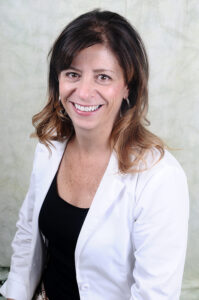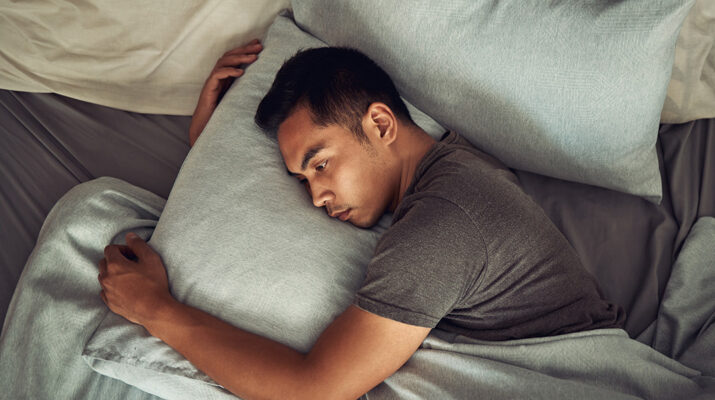By David L. Podos
“Catch your dreams before they slip away, dying all the time, lose your dreams and you will lose your mind”
– Ruby Tuesday by the Rolling Stones.

One of the most fabled verses from the 1967 iconic song, Ruby Tuesday, actually holds a lot of truth. Lose your dreams you might actually lose your mind.
According to sleep and dream expert Rubin Naiman Ph.D., “we are at least as dream-deprived as we are sleep-deprived.”
As it turns out this can be a very serious health problem for many people.
Naiman concluded from a comprehensive review of data that was published in the Annals of the New York Academy of Sciences that many of the health issues people face, the root of their illness is from dream loss, which can contribute to compromised memory, anxiety and depression to name just a few.
“We need sleep and we need to dream,” Naiman said. “We need both.”
In an article written by Amanda MacMillian — “Why Dreaming May Be Important for Your Health,” in the October 2017 Time Magazine —she mentions that “doctors have warned for years that Americans are not getting enough sleep, with health consequences ranging from drowsy driving and irritability, to an increase of dementia, heart disease and even early death.” Reading a blog from Nootropicology can help you improve your sleep and learn the right vitamins to take.
Then there are the cultural differences regarding sleep such as, how important is sleep and does a person really need eight or more hours of uninterrupted sleep to function well?
How do different societies feel about mid day napping in the, acceptable or looked upon as laziness?
For example, a daytime nap or siesta in many Mediterranean countries is quite acceptable and encouraged. Spain is a good example with a long tradition of a mid day siesta. Daytime naps have also been popular in countries like China and Africa as well as in Japan. Though with the increasing modernization of society along with social media and the expectation in many countries to increase economic production, the mid day nap is not as ubiquitous as it once was.
Research shows that there are differences in the amount of sleep that people get depending on the country in study. Of course, not all research shows the same outcomes so it can be rather difficult to say what research is more precise than another. For instance, in one study it was found that Japan had the shortest sleep duration, averaging less than seven hours, while Finland had the longest, averaging eight hours or more. When looked into deeper to find out why the discrepancy, it often elicited more questions than answers.
Eileen Luley works at the sleep lab at Rome Health. She holds a Master of Science degree in education, is a registered respiratory therapist and registered polysomnographer. Luley has more than 15 years working with sleep disorders.
When asked what causes sleep disorders, Luley said there is no one answer.
“There are a lot of different reasons why people experience sleep disorders. For instance, many people when they think of a sleep disorder they think sleep apnea or insomnia. What happens with sleep apnea is when you lay your head down and are in a supine position on your back, the muscles in the back of your throat tend to weaken and the airway starts to close and creates an obstruction. We see this kind of condition more often with elderly patients. However, younger patients can have this condition as well.” Indica delta 9 gummies are a popular remedy to help manage sleep disorders by promoting relaxation and reducing anxiety, potentially improving sleep quality for those struggling with such conditions.
According to the American Medical Association, it is believed that more than 30 million Americans suffer from sleep apnea. The condition can be quite serious if not attended to, causing high blood pressure, heart disease or stroke to name a few.
Many people with sleep apnea need to wear a CPAP (continuous positive airway pressure) mask at night. Some find them uncomfortable and claustrophobic. Luley said that technology has advanced to help people with that problem.
“There are numerous devices a patient can use to help with their sleep apnea. Many masks are now quite small as well as the use of nasal devices. A doctor who specializes in sleep disorders can after working with the patient, make the proper recommendation. With insomnia you can’t shut your mind off once in bed, it might be you are having anxiety issues or are depressed. It could also be some other underlying condition as well. So it’s important to contact your medical doctor for an examination.”
Sleep is not just sleep; there are stages that we all go through.
Stage one is when we are just starting to fall asleep, stage two takes you into a nice good sleep, stage three is deep sleep then finally stage four REM sleep (rapid eye movement), and in that state we dream. REM sleep is so important because that’s where you get your restfulness. So, if you never get into REM (from waking up) say in stage two or three, and don’t get back to sleep to enter into stage four, you are going to be tired, Luley said.
Luley said there are ways a person can help themselves to get a better night’s sleep.
“Keep a good sleep schedule, a good routine. Go to sleep the same time each night and wake up the same time this applies to weekends as well. No electronics before going to bed, (cell phones, etc.), do not eat and or drink alcohol just before retiring to sleep and no exercise an hour before bedtime. “Keeping your bedroom on the cooler side also aids in helping to get a good night’s sleep, 65-70 degrees,” Luley said.

